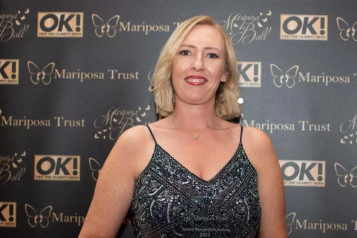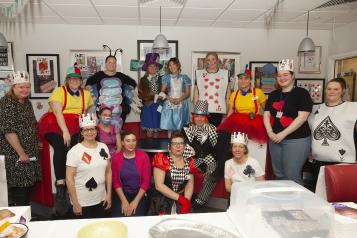Doncaster Psychiatrist retires after half a century of front-line care

Dr David Goodhead, has signed off from Rotherham Doncaster and South Humber NHS Foundation Trust (RDaSH), over 44 years after being appointed to his first Consultant Psychiatrist post - at Doncaster Royal Infirmary (DRI) - at just 29 years of age.
Just a few years earlier he had got his hands dirty in a variety of jobs to fund his university studies, including farm labouring, making pottery master moulds for firing in a kiln, and price stamping goods in a supermarket. He says the most challenging job was working in a crisp factory, where he hated cheese and onion production days, “but the tasting panel and employee discounted boxes of crisps were good.”
Dr Goodhead pursued a career in medicine after obtaining top grades in A-levels at Grammar school and gaining a place at London’s King’s College Hospital, where he qualified in 1972.
Pre-registration posts in A&E and Neurology/Oncology in London followed, where he was once on 24-hour call for 14 continuous days when colleagues were not available to cover.
He then decided to move into General Practice and, after spotting in the British Medical Journal a training course in Doncaster, headed to the city he has made home ever since.
Dr Goodhead said: “My only knowledge of Doncaster at the time was of the horse racing I had seen on TV. I had thought about buying a flat in London, but the prices were extortionate even then and Doncaster house prices were cheap at the time.
I was a trainee GP in a Thorne Road practice and then a General Medicine Senior House Officer at Doncaster Royal Infirmary. On call and carrying the cardiac arrest bleep, was continuous from Friday morning until Monday teatime, but it was generally normal practice in those days.”
Dr Goodhead’s training then moved into psychiatry at DRI, a move which he enjoyed and was to shape his future career. Spells at Sheffield’s Middlewood Hospital and Whitely Wood Clinic followed and later to Nottingham’s Mapperley Hospital and University department.
The digital age was in its infancy and Dr Goodhead remembers bringing to work the first word processor PC, which resulted in a temporary secretary leaving in some distress and never returning.
“Fortunately, when other secretaries saw the ability of being able to change documents, rather than retyping on old manual typewriters, they all wanted one, he laughed.”
Dr Goodhead’s career progressed, where he was at times involved in forensic, prison work and most sub specialities, and he became the first Medical Director of the former Doncaster Healthcare NHS Trust, a post he held for 14 years.
Later he pursued his interest in alcohol studies, lecturing at the University of York and preparing training videos for Sheffield-based services. He organised the first Alcoholics Anonymous meeting in Doncaster and later became Director of Alcohol Services but had to relinquish the role as Doncaster Healthcare Trust expanded, covering a wider geographical area as it became RDaSH Trust.
Reflecting on his long and distinguished career, Dr Goodhead said: “I have worked part-time in later years and feel the time has come to hand over the continuing work to a younger dynamic leadership to manage the further changes that will be needed in the NHS. I have always personally found the challenge over the years amazingly rewarding.”


